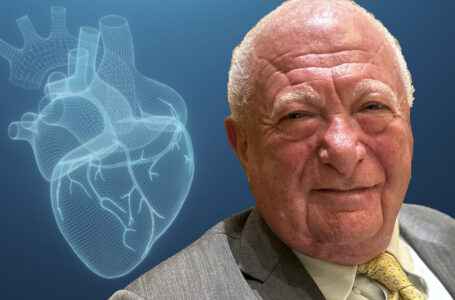The United States’ withdrawal from the World Health Organization (WHO) has spurred several countries to re-evaluate the agency’s policies and the influence of major funders, including Bloomberg Philanthropies.
The U.S. exit, formalized by a presidential executive order on Jan. 20, 2025, stemmed from concerns about the WHO’s handling of the COVID-19 pandemic, perceived political influence by certain member states, and the financial burden on the U.S., historically its largest donor.
Bloomberg Philanthropies has provided substantial support to the WHO and advocated for restrictive policies on less harmful alternatives to cigarettes.
Several countries expressed concern about Bloomberg’s influence on the WHO and its use of non-governmental organizations globally to shape government policies, alleging this is done under the guise of addressing public health concerns and infringes on national sovereignty.
The U.S. withdrawal has ignited international debate over the WHO’s impartiality. Asian nations, including the Philippines, India and Vietnam, have raised concerns about Bloomberg’s involvement.
In the Philippines, former Rep. Jericho Nograles warned during a congressional hearing about the Food and Drug Administration’s (FDA) acceptance of foreign funds to support the development of regulations for non-combustible cigarette alternatives. He argued that foreign private organizations might attempt to influence national policies through grants to government agencies, which he termed “an attack” on the country’s sovereignty.
“The bigger issue here is do we allow government agencies to be influenced by monies coming from foreign private organizations? What we are looking at here is a constitutional violation, an attack on the sovereignty of the Republic of the Philippines, our independence itself. That is the big problem,” Nograles said in the hearing.

In India, Delhi’s local government suspended a local organization, SEEDS, funded by Bloomberg Philanthropies, after questions about transparency.
In Vietnam, WHO officials publicly thanked Bloomberg-funded organizations for support, which they said allowed them to provide technical assistance to the government to combat smoking and the use of other nicotine products.
In Europe, the United Kingdom, Italy, Argentina and Hungary have publicly expressed concerns about the WHO’s direction. Italy’s Deputy Prime Minister Matteo Salvini proposed a withdrawal. Similar scrutiny has emerged from Russia, with calls for investigations into the WHO’s activities within the country.
Critics argue that political influence undermines the WHO’s ability to manage global health crises, leading to diminished confidence among member states.
The WHO Framework Convention on Tobacco Control has also come under increased scrutiny, facing criticism for its stance on tobacco harm reduction and alleged influence by special interest groups. Critics argue that the FCTC dismisses scientific evidence supporting less harmful nicotine alternatives.
Critics contend the FCTC dismisses scientific evidence supporting tobacco harm reduction strategies, favoring prohibitive policies. The FCTC has also been accused of lacking transparency, further eroding trust.
Media reports from several European countries, including Romania, Portugal, Czechia, Poland and Slovakia allege that the organization is driven by “philanthro-colonialist” interests, pushing restrictive policies on nicotine alternatives.
In the U.K., Action on World Health, led by former WHO official David Bell, has launched a review to recommend reforms or a replacement for the WHO, citing a departure from core public health principles.
“The WHO has drifted from its roots. Only with the right reforms can it regain trust, or it should be replaced by a body more fit for purpose,” Bell said.
Czech media echoed concerns about Bloomberg’s influence on FCTC policies, saying the organization ignores scientific evidence to please sponsors.
U.K. Members of Parliament Andrew Lewer and Mary Glindon criticized the FCTC, saying “it enacts Michael Bloomberg’s vision of stamping out all nicotine use, ignoring vaping’s potential to help smokers quit.”
Following the U.S. withdrawal, Salvini proposed a bill for Italy to exit the WHO. He said, “Italy must stop funding a supranational body that aligns with pharmaceutical interests. Let’s redirect those millions to support our hospitals.”
Argentina also announced its departure, citing the WHO’s lack of independence from political influence and dissatisfaction with its pandemic response.
The upcoming 11th WHO FCTC Conference of the Parties in Geneva in November 2025 is seen by observers as an opportunity for countries to engage in data-driven debates, independent of ideological or private donor influence.
Countries said the FCTC should implement reforms, uphold scientific evidence and include all stakeholders to maintain credibility. Failure to act could drive further withdrawals and reshape global health governance.



















